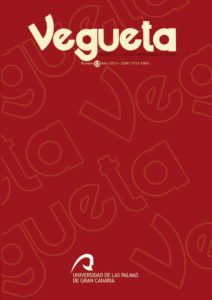 CFP: Revista Vegueta (Issue 17, 2017): “Messianism, Apocalyticism and the End of the World”
CFP: Revista Vegueta (Issue 17, 2017): “Messianism, Apocalyticism and the End of the World”
Submissions Due: 31 January 2017
This dossier of the journal Vegueta aims to collect contributions regarding messianism, Apocalypticism, and the end of the world. All three notions, which embrace the idea of Millenarianism, have evolved whether as a result of research conducted in the field of history or works from the history of thought or social movements. The current historical moment represents a new return of all these three notions, at least from the religious (connected to a variety of readings on some denominations), political (with the emergence of new political leaders who underscore their personality by embracing apocalyptical ideas) social (the crisis has triggered a whole new series of eschatological readings of the present in the face of new models and has set in motion social movements) literary (dwelling on the exhaustion of the great stories) philosophical (the fragmentation and widening of thinking into a sort of epistemic anarchism) perspectives not to mention the very dimension of the historical profession and its tools (where the academic model ends but a new one fails to emerge) and humanities at large. All these “returns” have prompted a reflection on the fact that messianism, apocalypticysm and the notion of end of the world can be identified in the world today and throughout history. We are therefore in a position to resume the reflections on these three topics in other chronological areas when they were also very central, like in the ancient age (which is when they came into being) the Middle Ages (when they were developed) and the Modern Age (when they were put into practice to a greater extent).
It is therefore our aim to reflect on the notions of messianism (whether in its Salvationist or Redemptorist sense), apocalyptycism (in the sense of situations or ideas that involve eschatological arguments) and the end of the world (in its dimension as a teleological prophecy pointing towards the destruction of the physical world). And we launch this space of work for the different areas of the field of history: ancient, medieval, modern and contemporary, as well as for other disciplines that have dealt with these issues, such as political science, philosophy, literature, anthropology, or any other natural science that is concerned with “endism”.
Therefore, we will welcome works that address the topic from either an empirical approach (based on theoretical groundings develo
ped into a practical instance), or a strictly conceptual approach (studying ideas in a historiographic or conceptual manner)
Through the dossier project we are presenting, we wish to provide a space to reflect on messianism, apocalypticism and the end of the world from a descriptive as well as an analytical point of view, theoretically as well as practically, asking ourselves what to make of these notions today, what their uses and meanings have been throughout history in different contexts and spaces and from a variety of perspectives. The dossier has a multidisciplinary approach and seeks to raise the interest of authors from the different historical areas as well as from a variety of disciplines (history of art, geography, political science, communication sciences, philosophy or anthropology). Our aim is to bring together a variety of approaches in order to stimulate a theoretical and practical reflection on the eschatological concepts, their meanings and uses throughout history at a time when we seem to discern a major change in our societies as shaped in the middle of the last century.
Authors should first send an abstract to the editor Israel Sanmartín at israel.sanmartin@usc.es. The deadline for the submission of final texts is 31 January 2017.
For further info, see the journal’s website.